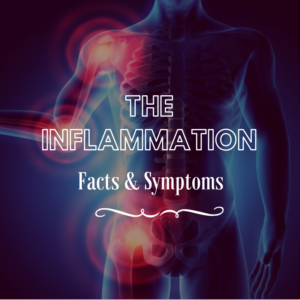What is Inflammation?
- 0 Comment(s)
- December 14, 2018
It is a defense mechanism of our body. When the immune system of the body identifies irritants, damaged cells, or pathogens it starts a healing process. This results in Inflammation which is otherwise known as the reaction of body’s immune system. It is a biological reaction when body sustains injury, irritation or cell damage. Inflammation could be pretty uncomfortable at times but it is the sign that body is trying to remove the irritant or heal the damage. It is certainly a positive reaction and a protective reaction of the body.
 The Inflammation Facts and Symptoms
The Inflammation Facts and Symptoms
Inflammation symptoms can be varying depending on the type and extent of the damage, and the fact whether it is acute or chronic will depend on them.
Acute Inflammation Symptoms
• Redness: this reaction is caused when the capillaries of the affected area has more blood than normal.
• Pain: when you touch the affected area it is likely to be painful, particularly during and after the touch. During the period chemicals responsible for stimulating nerve endings are released and that makes the area highly sensitive.
• Swelling: swelling is the inflammatory reaction when there is a fluid buildup in affected area
• Heat: when you touch it will feel warm, because there is excessive blood flow in the area
• Immobility: sometimes inflammation can render an area non-functional
The above acute inflammation symptoms are applied only to the inflammation of the skin. if the inflammation is deep inside our body such as an affected internal organ all symptoms will not be present. This happens when a sensory nerve is not present near the affected area.
Chronic Inflammation Symptoms
• Fever
• Fatigue
• Chest pain
• Mouth sores
• Abdominal pain
• Join pain
• Rash
Inflammatory reaction is not the proof that there is an infection present in your body, but a present infection can certainly cause inflammation
